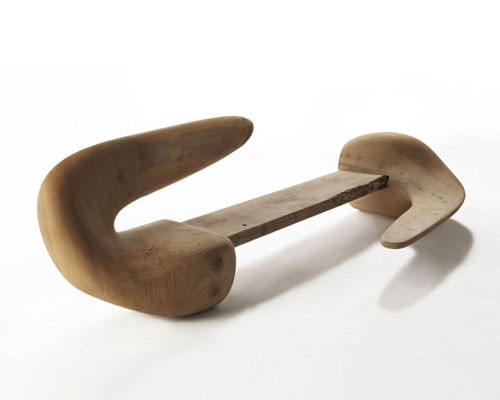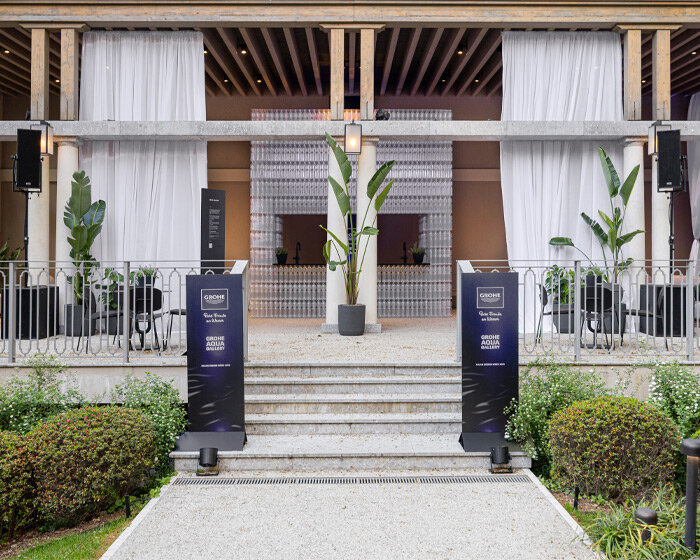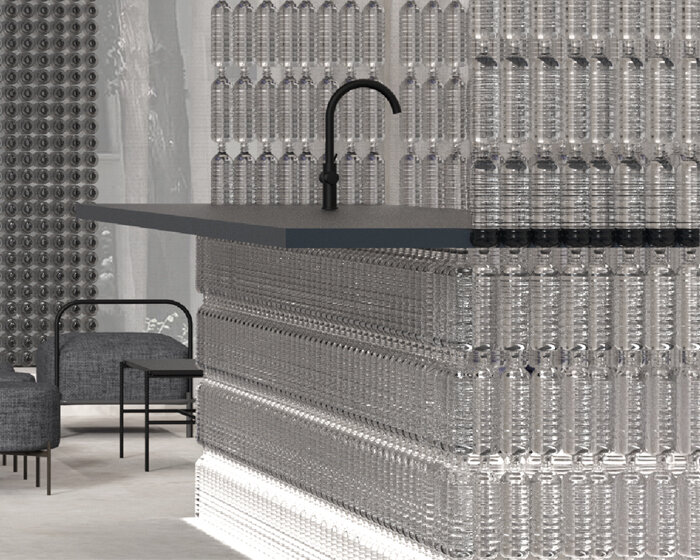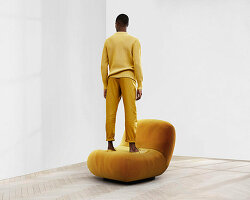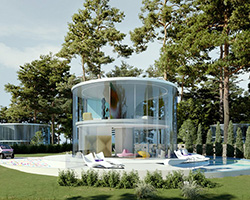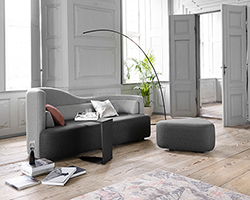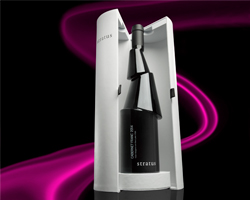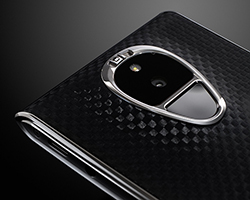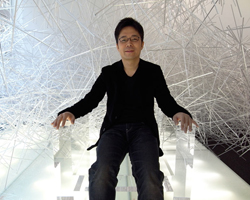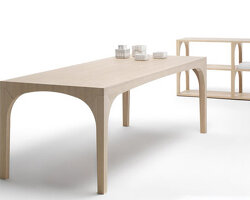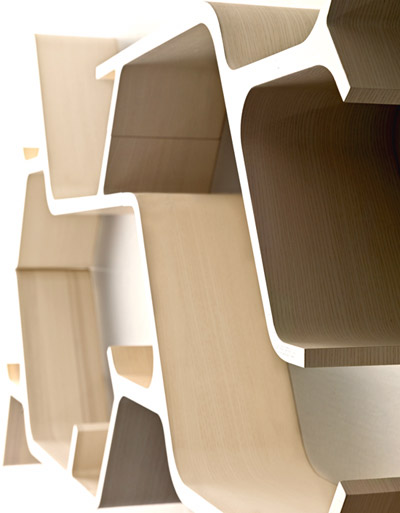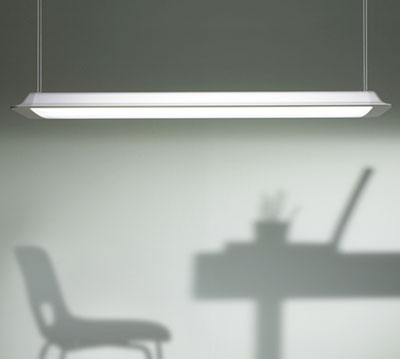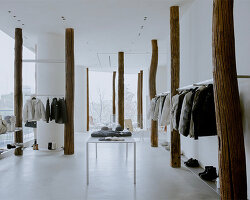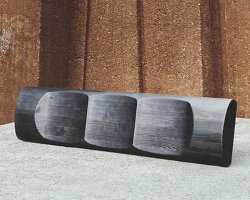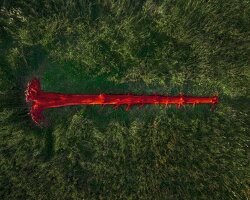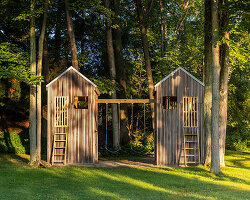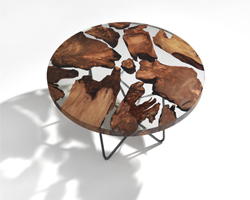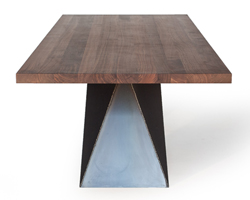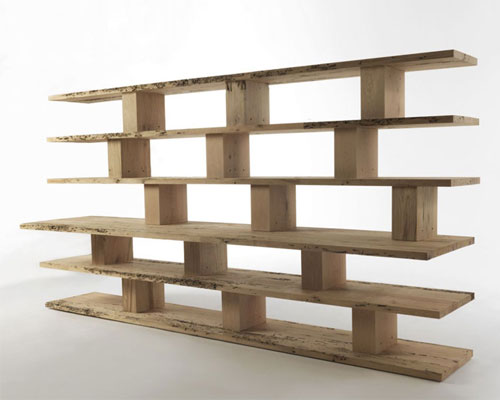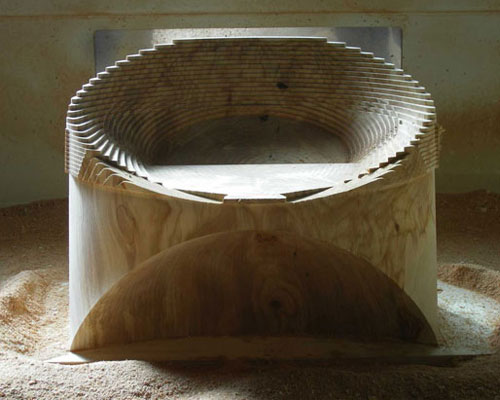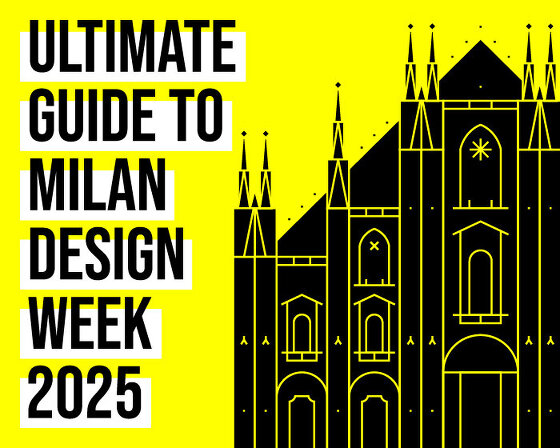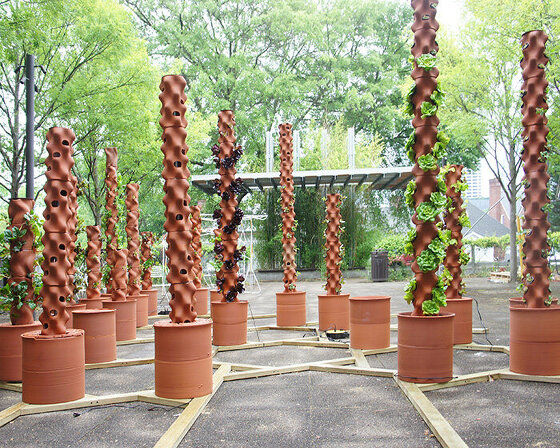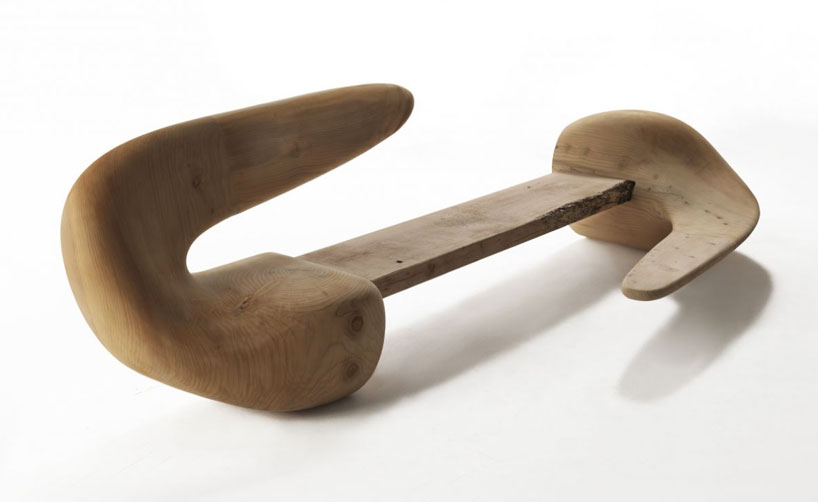
‘forocola’ by karim rashid uses reclaimed venice lagoon oak poles
‘forkola’ by karim rashid is currently being showcased as part of ‘tra le briccole di venezia’, a project initiated by italian company riva 1920 at the triennale museum for milan design week 2010. the exhibition involves 22 leading names from the design, art and fashion world, supporting ecologic values and linked to the re-use of a peculiar product belonging to the venetian landscape: the ‘briccole’.
‘briccole’ are chestnut oak posts on which venetian gondolas are docked. the wood was sunken into the venice lagoon seabed to provide navigation information to boats. during their submersion in the sea, they are exposed to microorganisms and marine flora and fauna causing them to disintegrate. corroded by tides, these posts last an average of 5-10 years, after which they are replaced.
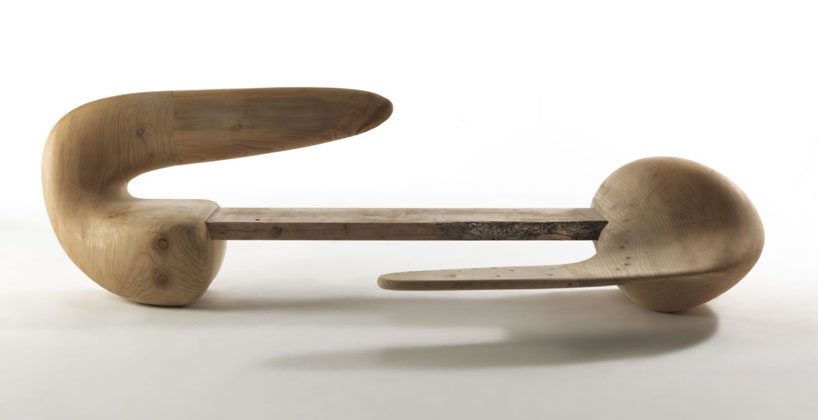 ‘forkola’ for riva 1920
‘forkola’ for riva 1920
karim rashid was heavily influenced by his memories of his student life in italy, and his designs draw from the language of gondolas, creating soft organic forms that stretch into a point and join by the contrasting geometric severity of connecting beams.
‘when riva 1920 approached me about project venice I immediately began thinking back to my days of studying in italy and my time in venice and also thinking of the importance of change while embracing the future and exploiting the past and its materials for all that it’s worth.‘- KR
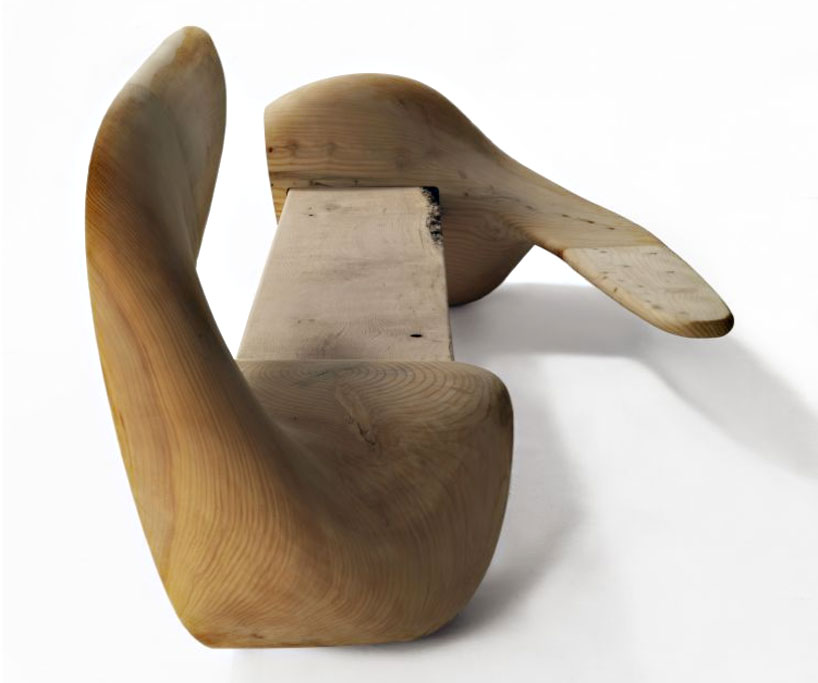 side view
side view
upon riva 1920’s selection of rashid’s most intriguing sketch, further development was made through printouts of a few different scale models whereby rashid progressively worked towards enhancing its form. the result is one blop-like shape, pulled and stretched to create a backrest while another is extended to become a table surface with the briccola, the beam that connects the backrest.
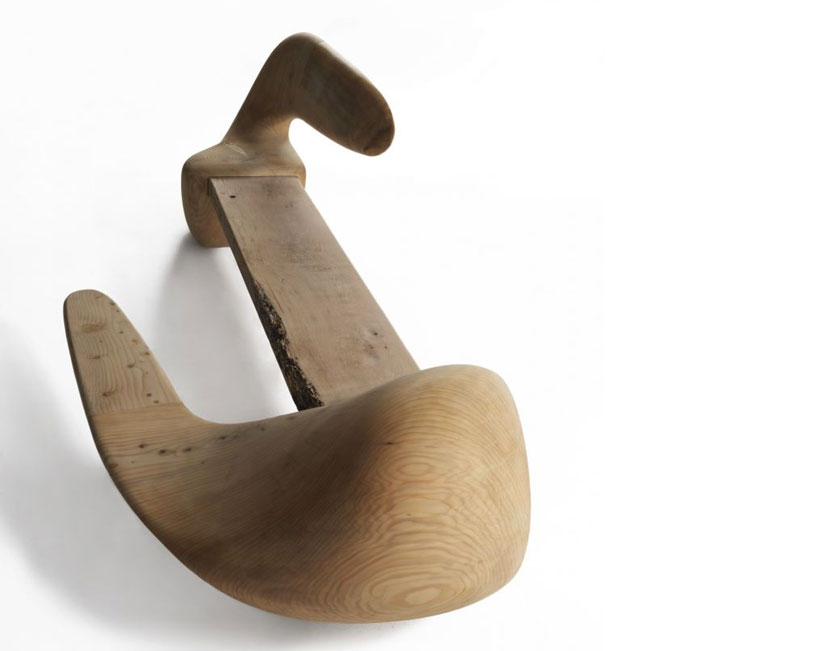 side view
side view
the finished pieces place emphasis on the history of change of the material: wear and tear, wood worms, all are still visible in the transformative nature of the designs. the wood is unsealed- it will continue to change, stain and patina as it used and ages in its new environment. due to the nature of the material all items are unique.
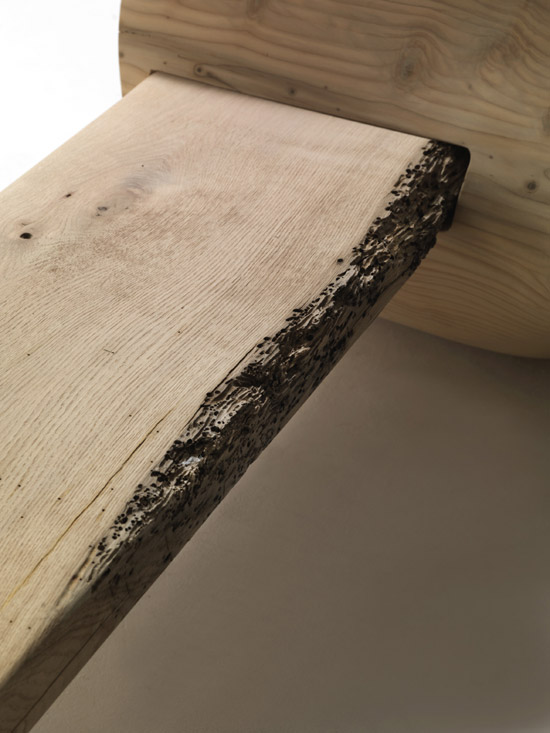 detail
detail
the briccole, rather than ending their lives rotting in some depressing, filthy dump, can be reborn and conjure up memories of their past now in the context of an elegant home, a hotel or fashionable meeting place… it might perhaps be defined as a kind of romantic and poetic recycling.
 karim rashid portrait © designboom
karim rashid portrait © designboom
riva 1920 is an italian manufacturer founded in, you guessed it, 1920. what is so remarkable about the company is that they have remained a quality artisan woodwork company after 90 years. unchanged. long known for their quality, solid woodwork, the rivas realized that their final product was only as good as their materials. these woods needed to be protected as a resource, are from a well-managed forest and have been approved by the forest stewardship council, an internationally recognized non-governmental organization dedicated to the control of woodland products.
